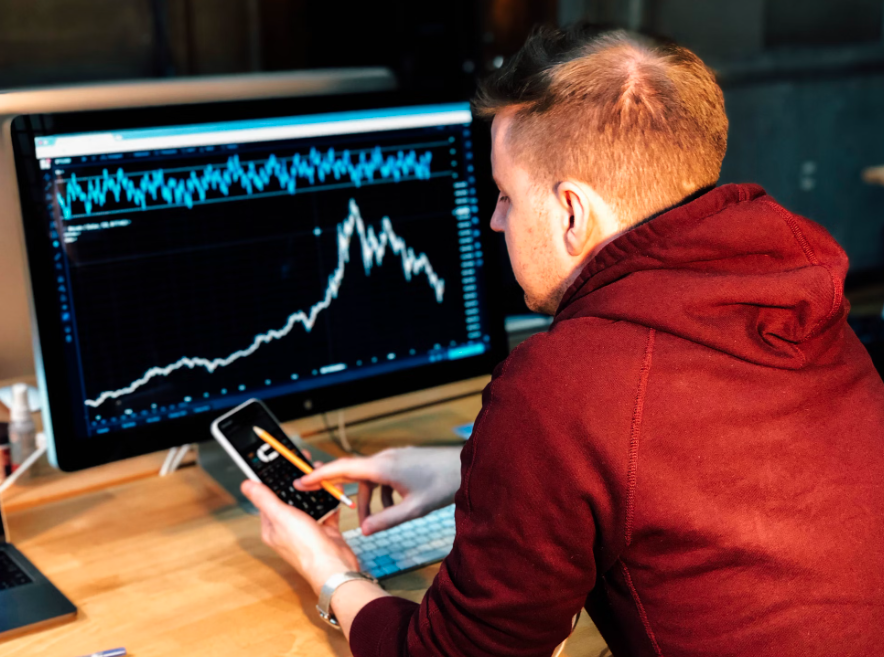Cryptocurrency investment has become a hot topic, attracting both seasoned investors and newcomers. If you’re just starting out, it’s crucial to understand the basics and adopt effective strategies. This comprehensive guide will provide you with essential tips to navigate the world of crypto investment successfully.
Introduction to Cryptocurrency Investment
Cryptocurrency investment involves buying and holding digital assets with the expectation that their value will increase over time. Unlike traditional investments, cryptocurrencies are decentralized and operate on blockchain technology. This guide aims to equip new investors with the knowledge and tools needed to succeed in the crypto market.
Understanding Cryptocurrency
What is Cryptocurrency?
Cryptocurrency is a digital or virtual currency that uses cryptography for security. It operates independently of a central bank and relies on a decentralized system called blockchain to record transactions.
How Does Blockchain Work?
Blockchain is a distributed ledger that records all transactions across a network of computers. Each transaction is added to a block, which is then linked to the previous block, forming a chain. This structure ensures transparency and security.
Key Terminologies
- Bitcoin: The first and most well-known cryptocurrency, created by an anonymous person or group known as Satoshi Nakamoto.
- Altcoins: Alternative cryptocurrencies launched after Bitcoin, such as Ethereum, Litecoin, and Ripple.
- Tokens: Digital assets created on existing blockchains, often used in decentralized applications (dApps).
Reasons to Invest in Cryptocurrency
High Growth Potential
Cryptocurrencies have shown significant growth potential, with some early investors reaping substantial rewards. For instance, Bitcoin’s value surged from a few cents to over $60,000 at its peak.
Portfolio Diversification
Cryptocurrencies offer a way to diversify your investment portfolio. They have different risk and return profiles compared to traditional assets like stocks and bonds.
Innovation and Technology
Many cryptocurrencies are tied to innovative technologies and platforms. For example, Ethereum’s smart contracts enable decentralized applications, opening new possibilities in various industries.
Setting Up Your Crypto Wallet
A crypto wallet is essential for storing and managing your digital assets. There are different types of wallets, each offering varying levels of security and convenience.
Types of Crypto Wallets
- Hardware Wallets: Physical devices that store your private keys offline, providing robust security.
- Software Wallets: Applications installed on your computer or mobile device. They are convenient but less secure than hardware wallets.
- Paper Wallets: Physical printouts of your public and private keys. While secure from online threats, they can be easily lost or damaged.
How to Set Up a Crypto Wallet
- Select a Wallet: Choose a wallet that suits your needs based on security and convenience.
- Download and Install: If using a software wallet, download it from the official source.
- Create an Account: Follow the setup instructions to create your wallet and securely back up your private keys.
Choosing the Right Cryptocurrencies
With thousands of cryptocurrencies available, selecting the right ones can be challenging. Here are some factors to consider:
Market Capitalization
Market cap is the total value of a cryptocurrency. Higher market cap coins like Bitcoin and Ethereum are generally more stable and widely accepted.
Use Case and Technology
Consider the problem the cryptocurrency aims to solve and its technological foundation. For example, Ethereum is known for its smart contract functionality.
Development Team and Community
Research the team behind the cryptocurrency and its development activity. A strong, active team and community support are positive indicators.
Adoption and Partnerships
Look for cryptocurrencies with significant adoption and strong partnerships. Widespread use and reputable partners can signal potential for growth.
How to Purchase Cryptocurrencies
Buying cryptocurrencies is a straightforward process but varies depending on your location and the exchange you use.
Steps to Buy Cryptocurrencies
- Choose an Exchange: Select a reputable exchange like Coinbase, Binance, or Kraken.
- Create an Account: Sign up and complete any required identity verification.
- Deposit Funds: Add funds to your account via bank transfer, credit card, or other methods.
- Buy Cryptocurrency: Navigate to the trading section and purchase the desired cryptocurrency.
Securing Your Crypto Investments
Security is paramount in cryptocurrency investment. Here are some best practices:
Use Secure Wallets
For long-term storage, use hardware wallets. They keep your private keys offline, reducing the risk of hacking.
Enable Two-Factor Authentication (2FA)
Add an extra layer of security to your exchange and wallet accounts by enabling 2FA.
Backup Your Wallet
Regularly backup your wallet and store copies in multiple secure locations. This ensures you can recover your assets if something goes wrong.
Stay Vigilant
Be cautious of phishing attempts and scams. Only use official websites and double-check URLs.
Strategies for Successful Crypto Investing
Investing in cryptocurrencies requires careful planning and strategy. Here are some tips to help you succeed:
Do Your Research
Thoroughly research any cryptocurrency before investing. Understand its technology, use case, and market trends.
Diversify Your Investments
Don’t put all your money into one cryptocurrency. Spread your investments across different assets to mitigate risk.
Keep Up with News
Stay informed about the latest developments in the crypto world. News and updates can significantly impact cryptocurrency prices.
Invest Wisely
Only invest what you can afford to lose. Cryptocurrencies are volatile, and their prices can fluctuate dramatically.
Common Pitfalls and How to Avoid Them
Even experienced investors can make mistakes. Here are some common pitfalls and how to avoid them:
FOMO (Fear of Missing Out)
Don’t make impulsive investment decisions based on hype or fear of missing out. Stick to your research and strategy.
Ignoring Security
Neglecting security measures can lead to loss of funds. Always prioritize the safety of your investments.
Lack of Diversification
Investing all your money in a single cryptocurrency is risky. Diversify to minimize potential losses.
Panic Selling
Cryptocurrency markets are volatile. Avoid panic selling during market dips and focus on your long-term goals.
Conclusion
Investing in cryptocurrencies can be highly rewarding if approached with the right knowledge and strategies. By understanding the basics, choosing the right cryptocurrencies, securing your investments, and avoiding common pitfalls, you can navigate the crypto market successfully.
Remember, the key to successful crypto investing is continuous learning and staying informed about market trends. Happy investing!
Frequently Asked Questions
1. What is a cryptocurrency wallet?
A cryptocurrency wallet is a digital tool that allows you to store, manage, and transfer your digital assets securely. It can be a physical device (hardware wallet), software application, or even a piece of paper containing your keys.
2. How do I choose the best cryptocurrency to invest in?
Consider factors such as market capitalization, use case, technology, development team, and community support. Research thoroughly before making a decision.
3. Is cryptocurrency a safe investment?
Cryptocurrency investments come with high risks due to their volatility. While they can offer high returns, they can also result in significant losses. It’s essential to invest cautiously and only what you can afford to lose.
4. What is the significance of the date May 30, 2024, in crypto investment?
May 30, 2024, marks a notable point in the evolving landscape of cryptocurrency investment. Learning about key events and updates can help investors make informed decisions.
5. How do I keep my cryptocurrency safe?
Use hardware wallets for long-term storage, enable two-factor authentication, keep your private keys secure, and regularly back up your wallet.
6. Can I lose my money in cryptocurrency?
Yes, the value of cryptocurrencies can fluctuate widely, leading to potential losses. Additionally, if you lose access to your wallet or fall victim to a security breach, you could lose your investment.
7. How do I buy cryptocurrency?
You can buy cryptocurrency through a cryptocurrency exchange. Sign up, deposit funds, and purchase the cryptocurrency of your choice through the exchange platform.
By following this guide and staying informed, you’ll be well-equipped to start your journey in cryptocurrency investing with confidence and knowledge. Happy investing!


